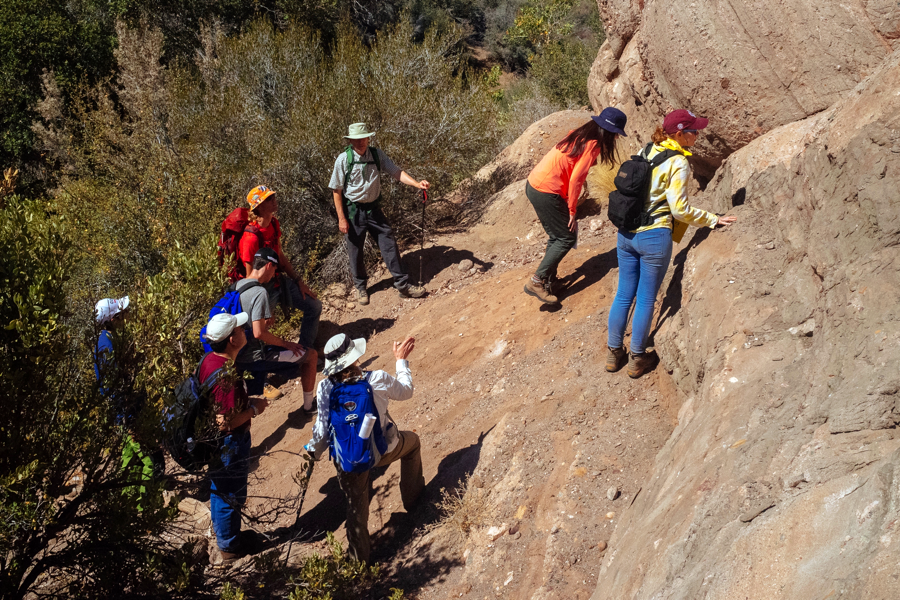All Categories
Featured
Table of Contents
Geophysicist Bob Embley: Ocean Exploration Careers in Sinagra Australia 2021
This work is significantly contracted out, so consultancies offer another source of work. Consultancy firms vary in size, from really small business to big multinationals. Some consultancies are rather specialised in using specific geophysical strategies or working in specific locations, while others provide a more diverse range of services to their clients.
The extraction of gas from land fill websites is another location of work and this might grow in the future. Expedition business might undertake work for building and construction companies, water business, mining companies and environmental companies, so geophysicists may be used in any of these settings. Other companies consist of: geological surveysgovernment bodies and agenciesuniversities and research study institutes.


Vacancies may be noted in the oil and gas sector press. Recruitment is impacted by oil rate changes and the level of competition for positions varies depending on this. Careers Days, which cover the full variety of geoscience careers and are normally gone to by a variety of essential market companies, are run by The Geological Society.
How To Become A Geophysicist in Mirrabooka Western Australia 2021
Some of the large oil and gas companies provide a complete two-year structured training program throughout the breadth of geophysics, consisting of the chance to experience operate in different groups prior to specialising in one location. Your training might consist of deal with: existing wellsmagnetic and gravitational prospective field data analysisresearchrock analysis. It's more typical for your preliminary training to be supplied on the task.

There may be a probationary duration during which you work alongside an experienced coworker. Competency-based appraisals happen frequently in many firms. In smaller sized companies, and for scholastic posts, there is unlikely to be any official training - you'll be anticipated to begin work straightaway and pick up abilities as you go along.
If you work for a smaller company, you may find that you require to take obligation for arranging and funding your own development and training. If you have a geology degree, subscription of The Geological Society can be beneficial for networking and for maintaining to date with the market.
Geophysical Prospecting in Mindarie Australia 2021
You may likewise find it helpful to sign up with the PESGB (The Petroleum Exploration Society of Great Britain, which has a geophysics unique interest group. After a probationary period, and once you've gotten some experience, you might advance to senior geophysicist, then group leader and after that into a senior function in management.
The ease of movement in between roles depends on the business structure. Research study at Masters or Ph, D level in a subject related to geophysics or geosciences may assist with your profession advancement and development. The employment market within the oil and gas market is really reliant on price and this may impact your opportunities for profession development.
Not all tasks are reliant on the oil and gas industries. For knowledgeable geophysicists, freelance consultancy uses a good route for career development. You can also specialise in a specific location of geophysics. As a geophysicist, you're most likely to have a number of jobs throughout your working life. Worldwide mobility is vital for handling peaks and troughs in various nations at various times.
Geophysical Survey - Plaza Of The Columns Complex in East Perth Oz 2020
From geophysics, it's possible to focus on seismology (completing more training to become a seismic interpreter) or to move into related areas such as engineering geology or threat prediction.
Deciding what to study in college is a tough option. Even if you know that your field of interest lies in science, what program of study is right for you?
The first action to achieving your goal of becoming a geophysicist is earning a degree. Even for entry-level positions in the field of geoscience, you'll need a bachelor's degree (a geophysicist college degree) from a recognized college or university. Some research study positions need candidates to hold master's degrees or even Ph.
Geophysicist Education in Cannington WA 2021
Doctoral degrees are specifically essential if you plan to teach at a four-year institution. Geophysicists apply physics ideas and methods to study the gravitational, magnetic, and electric fields of the earth. This advances researchers' knowledge of both the planet's interior core and its surface area. Geophysicists need to be able to: analyze rocks, pictures, and other pieces of information conduct research study both in the field and in laboratories create maps and charts of their findings write reports To achieve all this, trainees need a specialized education for geophysicist careers.
As stated above, you'll require a bachelor's degree in geoscience or an associated discipline, such as a physical science or a natural science, to land an entry-level job. However trainees can likewise prepare by majoring in topics like: Biology Chemistry Computer technology Engineering Mathematics Physics The above geophysicist majors provide a more generalized method to a single scientific discipline, however many programs need trainees to take one or more geology course.
Table of Contents
Latest Posts
Geophysical And Geotechnical Assessment in Mount Hawthorn Western Australia 2020
Geophysicist Bob Embley: Ocean Exploration Careers in Alexander Heights Oz 2022
Geophysical Surveys: Definition & Methods in Woodlands Western Australia 2021
More
Latest Posts
Geophysical And Geotechnical Assessment in Mount Hawthorn Western Australia 2020
Geophysicist Bob Embley: Ocean Exploration Careers in Alexander Heights Oz 2022
Geophysical Surveys: Definition & Methods in Woodlands Western Australia 2021